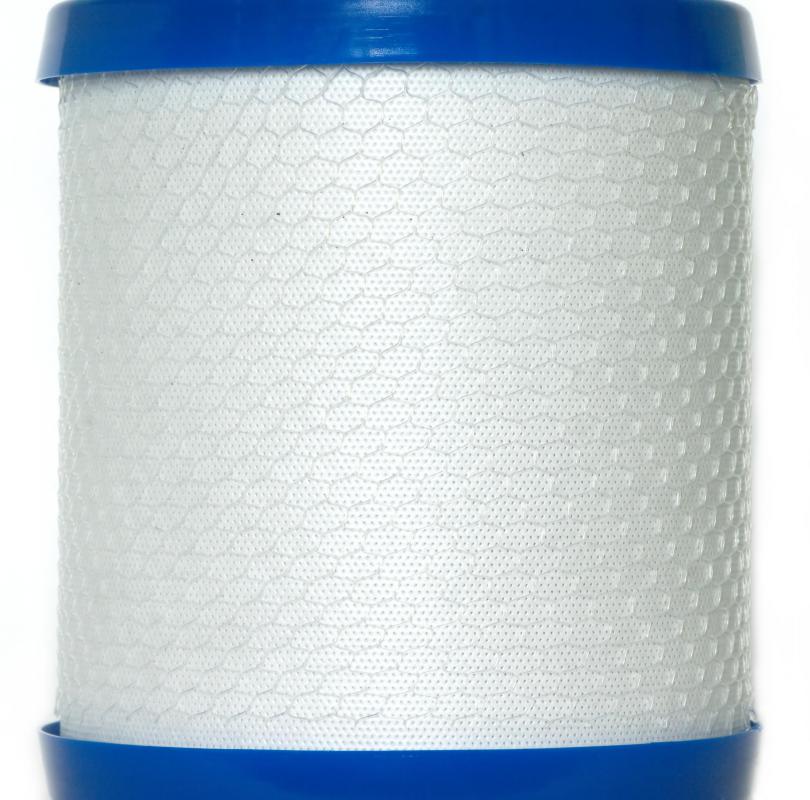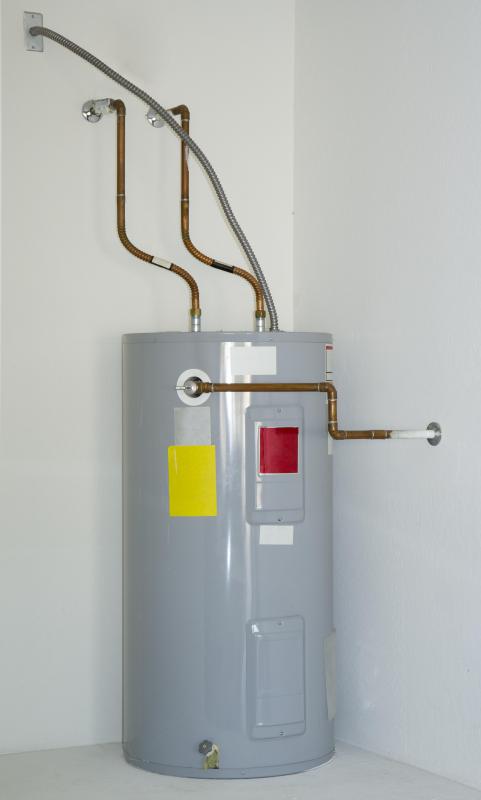At HomeQuestionsAnswered, we're committed to delivering accurate, trustworthy information. Our expert-authored content is rigorously fact-checked and sourced from credible authorities. Discover how we uphold the highest standards in providing you with reliable knowledge.
How Do I Choose the Best Hard Water Filter?
A hard water filter, also called a water softener, is designed to filter water to remove excess minerals. Hard water has a higher-than-normal content of minerals such as magnesium and calcium. Mineral-rich water might sound healthy, but the limescale it creates can be hard on pipes, basins, clothing and your skin. Hard water stains and hard water spots can become a frustrating problem unless you use a filter to soften the water. Though there are several types of filters available, you should generally choose between an activated carbon filter, a reverse osmosis filter, and a water softener.
Most hard water filters are typically installed between the incoming water pipe and the kitchen faucet, or wherever the water needs to be softened. In some cases, water treatment might start where the supply comes into the house. This might be the best option for areas where the water is so hard that mineral scale would otherwise build up and quickly clog the water pipes. In areas where scale build up is a serious problem, water heaters and boilers may need to be repaired or replaced more often than usual if the water is not softened before it reaches them.

An activated carbon filter, also commonly called an activated charcoal filter, uses activated carbon particles to clean the water of such things as loose particles and chlorine. Each pound (about 0.45 kg) of carbon has a surface area that is equal to more than 100 acres (about 0.40 square km) that can absorb impurities in the water. This type of hard water filter is commonly installed beneath the faucet to soften drinking water or the water that will be used for bathing or washing clothes, though whole-house models are available.

A carbon hard water filter creates generally odor-free, pleasant drinking water, but does not tend to filter out things such as minerals and other substances that are dissolved. The carbon filters do fill up with impurities over time and must be changed to keep working. How often the filters need to be changed will vary depending on the condition of the water and how much goes through it.

The reverse osmosis hard water filter uses a membrane that typically removes particles far too small for charcoal filters to stop. Almost all filters of this type are connected to a single tap in the home because they can be very expensive to use as whole house filters. Only about 10% of the water that passes through these filters is cleaned, with the rest going instantly into the waste water. Despite the heavy use of water a reverse osmosis filter requires, you may prefer it because it removes more small impurities than other systems and generally creates high-quality drinking water. The filter cartridges do occasionally need to be cleaned or replaced to keep the system working.

A water softener may be best in extremely hard water areas. These generally use small zeolite beads that have a negative magnetic charge, with positively charged sodium ions bonded to them. Magnesium and calcium ions are attracted to the zeolite because they have a positive charge. Their charge is stronger than the sodium's, so their movement forces the sodium into the water, essentially trading places with it. A softener can help protect a home's pipes and water appliances from scale buildup, but it will add salt to the water supply.
Many people who install water softeners also add a filter beneath their kitchen sinks to remove the salt from their drinking water. An activated charcoal hard water filter is not typically suitable for removing sodium. A reverse osmosis filter, however, should remove most, if not all, of the salt added by the water softener.
AS FEATURED ON:
AS FEATURED ON:














Discussion Comments
Thanks for the article! Could you suggest a few names of good shower filters?
Post your comments